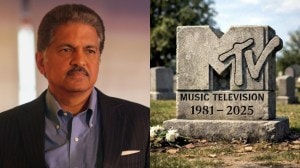America was the future
Last week8217;s release of the Pew Global Attitudes Survey provides the most vivid evidence of a new worldwide...

Last week8217;s release of the Pew Global Attitudes Survey provides the most vivid evidence of a new worldwide consensus. But 8212; and here8217;s the bad news 8212; it highlights the fact that that the United States is becoming the odd country out.
The most striking statistic in the survey has to do with trade. Thumping majorities everywhere said that growing trade ties between countries are 8220;very good8221; or 8220;somewhat good8221; 8212; 91 per cent in China, 85 per cent in Germany, 88 per cent in Bulgaria, 87 per cent in South Africa, 93 per cent in Kenya and so on. Of the 47 countries surveyed, the one that came in dead last was 8212; America, at 59 percent.
Take a look at the attitudes toward foreign companies. When asked if they had a positive impact, a surprisingly large number of people agreed. South Asia8217;s traditional unease has some basis; those countries were colonised by a multinational corporation. And yet, 73 per cent in India, 75 per cent in Bangladesh, 70 per cent in Brazil and 82 per cent in Nigeria favour these companies. The number in America, however, is 45 per cent, which places us in the bottom five. We expect the world to welcome US companies with open arms and yet do not reciprocate the hospitality. The United States has always thought of itself as exceptional.
But nowadays we are standing apart for the wrong things. America has typically been seen as the place where the boundaries of personal freedom were being stretched, where women8217;s liberation was forged, where wacky new lifestyles and crazes were most enthusiastically adopted. For much of the world, America was the future. That is not the impression you would come away with, looking at this survey. For example, America has an unusually regressive attitude on whether homosexuality should be 8220;accepted,8221; a much tamer question than whether to approve civil unions or gay marriages: 49 per cent say yes, and 41 per cent, no. On what has become a crucial test of a society8217;s inclusiveness and tolerance, the United States lags well behind every Western European country, as well as many Eastern European and most Latin American countries. Catholic Mexico is far more accepting, with 60 per cent saying yes, and only 31 per cent, no.
The United States is becoming utterly unexceptional on another issue 8212; immigration. It8217;s not really news that majorities everywhere want to restrict and control immigration. But it is strange that sentiment is as strong in the world8217;s foremost nation of immigrants. More Americans are against immigration than Frenchmen or Germans.
The most startling aspect here is the trend. The United States has had the biggest drop in support for trade among all countries surveyed since 2002. On some of the other issues 8212; like immigration 8212; the data suggest that American attitudes have shifted even more sharply. All of this points to a stunning lack of political leadership.
Foreign companies and foreigners 8212; as well as expanding trade, travel and markets 8212; are all going to be a large part of the 21st century. Look around. If you update the current ranking of the 10 richest people in the world, you will find that eight of them are now non-Americans and every one is an entrepreneur. The natives have gotten very good at capitalism.
And the American public gets more and more spooked and less and less prepared for the world we8217;re entering.
- 01
- 02
- 03
- 04
- 05































